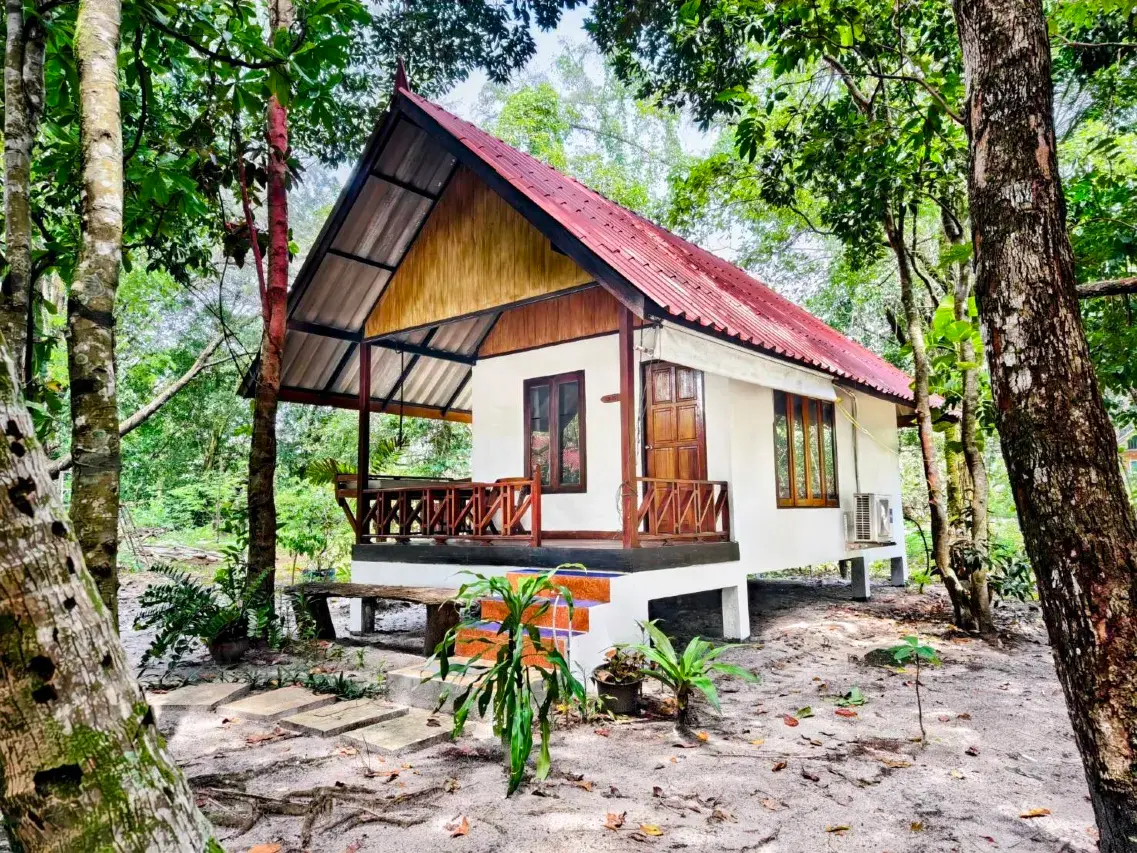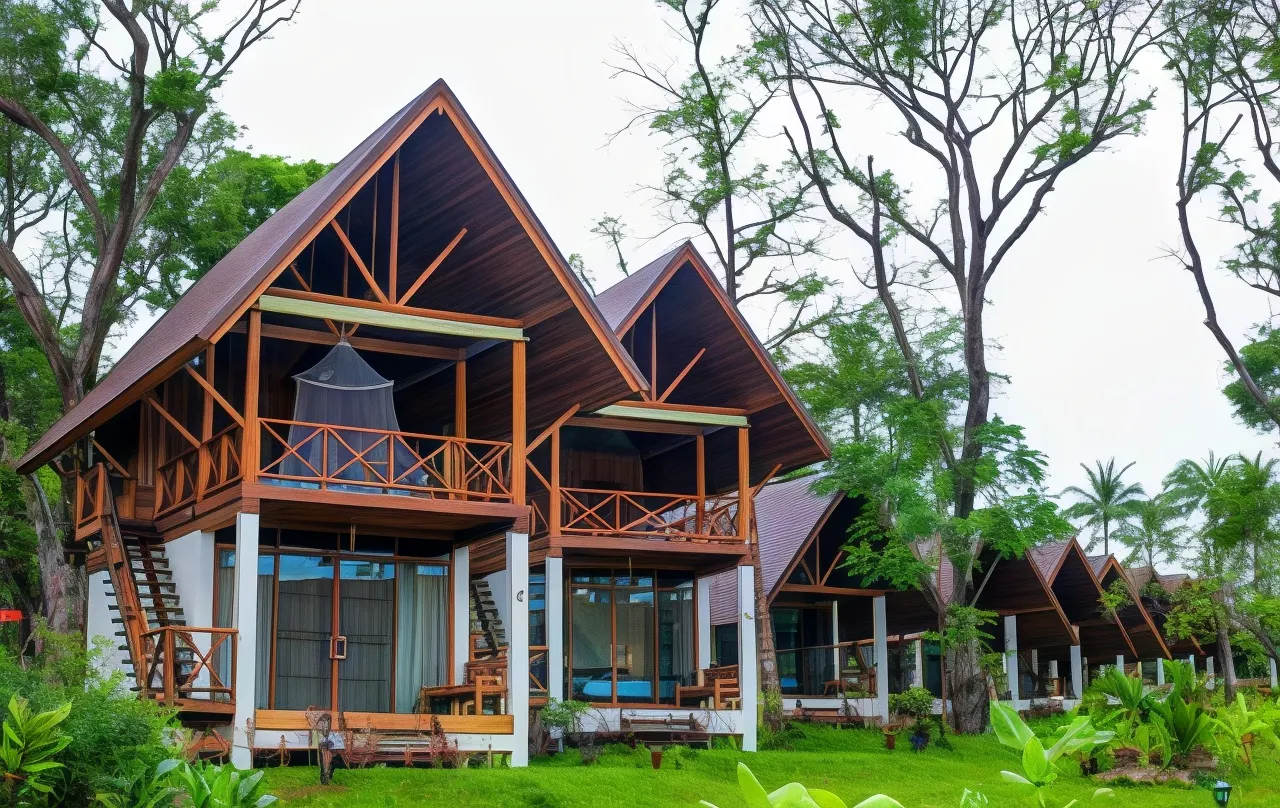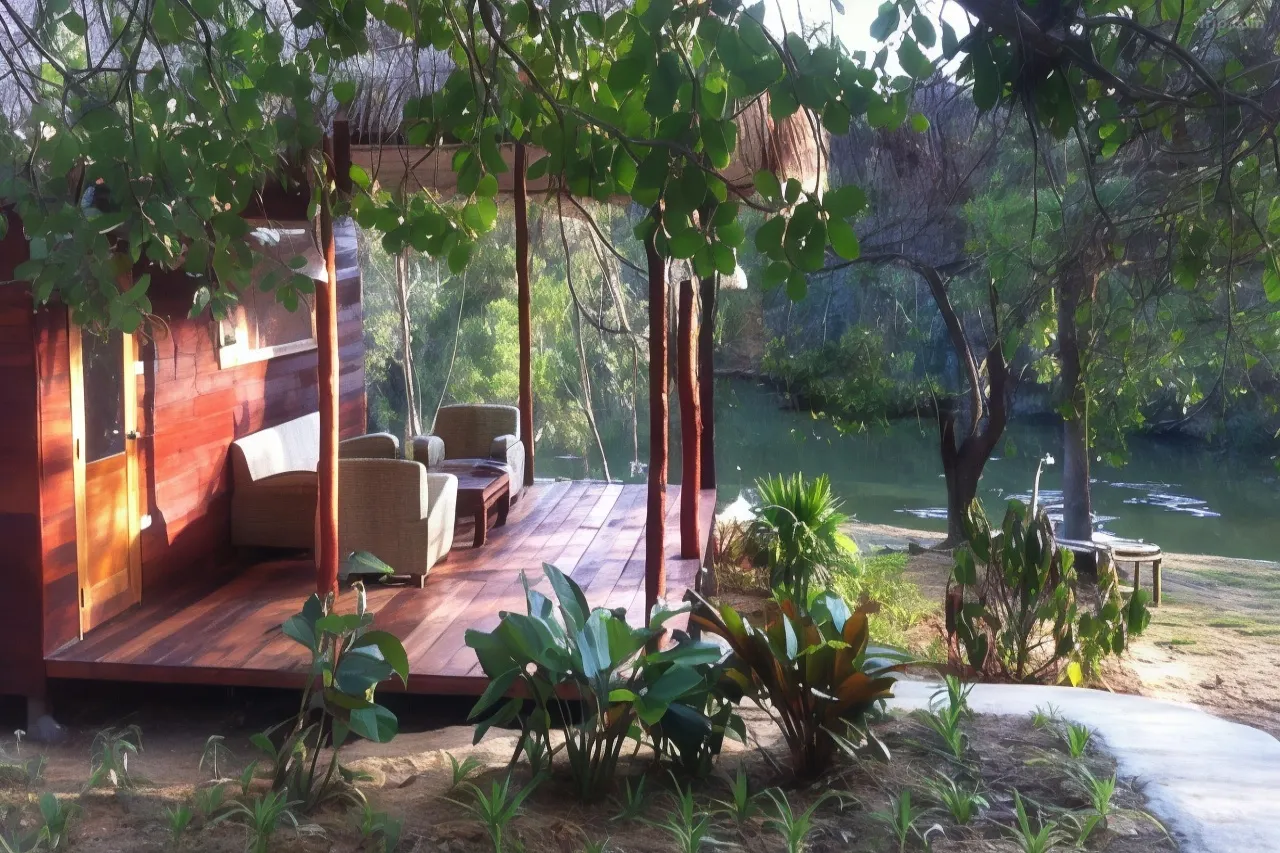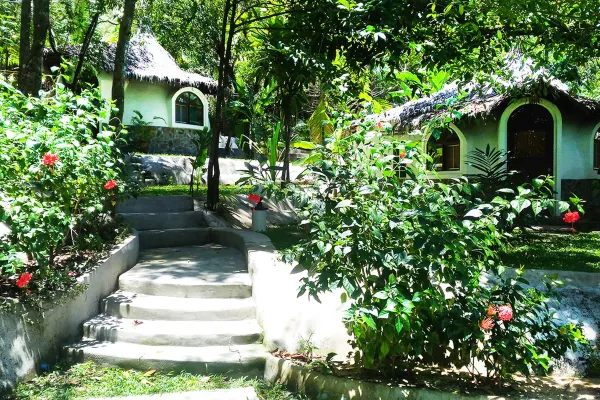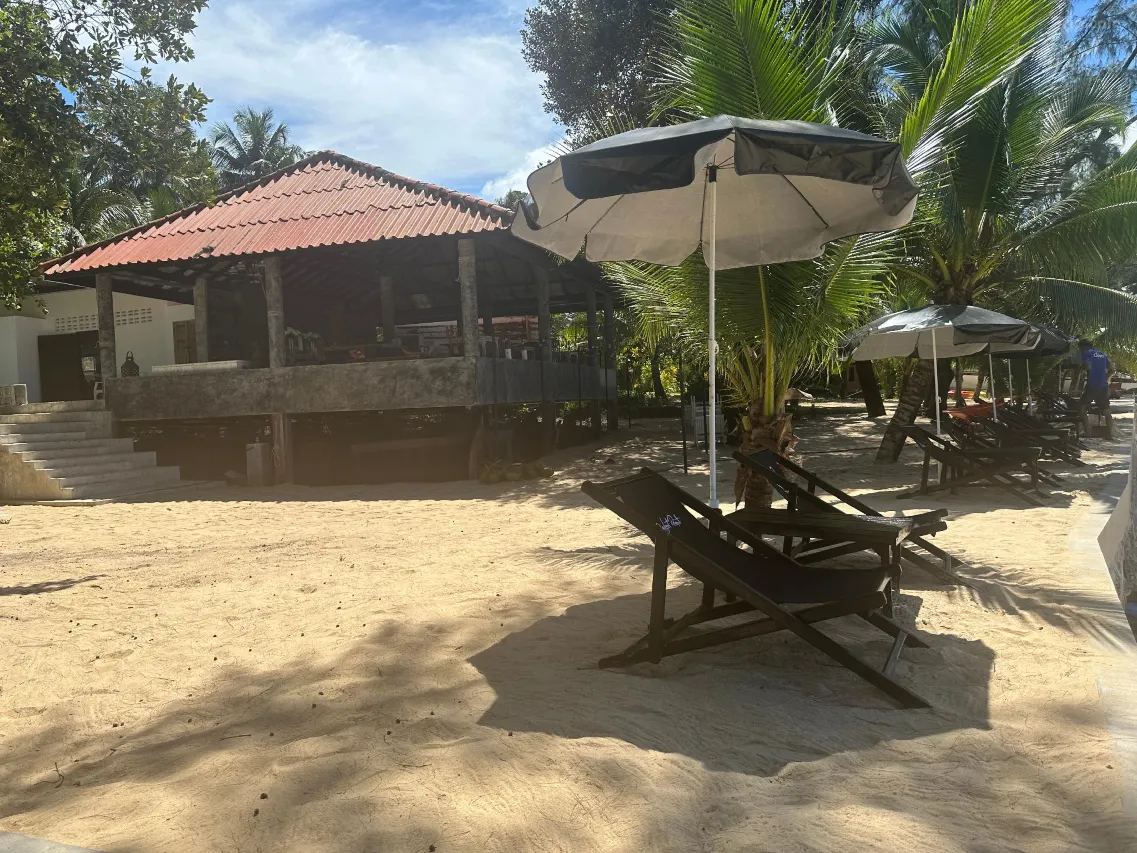Meet the Moken: Guardians of the Andaman Sea 🌊
The Moken, often called "sea nomads," are an indigenous people with a deep-rooted connection to the turquoise waters of the Andaman Sea. For centuries, they've lived a semi-nomadic life, journeying between the islands of the Mergui Archipelago in Myanmar and Thailand's Surin Islands. Their lives have been intricately intertwined with the ocean, relying on it for sustenance, transportation, and their very identity.
Known for their exceptional free-diving skills and intimate knowledge of the marine environment, the Moken have traditionally lived in harmony with the sea. Their unique culture and traditions, passed down through generations, offer a fascinating glimpse into a way of life deeply connected to the natural world. ✨
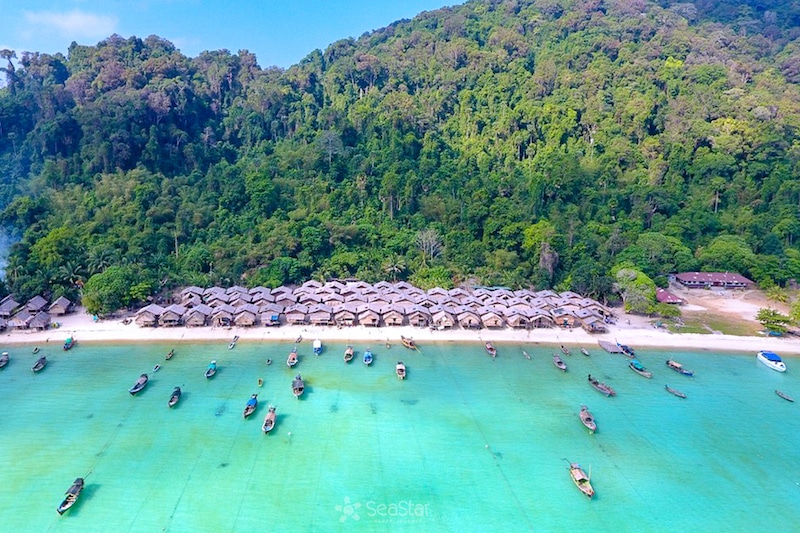
A People of the Sea: Moken Heritage
The Moken people, sometimes called "sea gypsies" or "sea nomads," have a captivating history intertwined with the Andaman Sea. For centuries, they've lived a nomadic life, traveling in small hand-built boats called kabang, their lives deeply connected to the ocean's rhythms. 🌊
Their origins remain somewhat mysterious, with possible links to Austronesian groups who migrated thousands of years ago. But one thing is certain: the Moken possess an intimate knowledge of the sea, passed down through generations. They are renowned for their:
- Free-diving prowess: Moken are able to free-dive to incredible depths, holding their breath for extended periods, to gather seafood and other resources. Their underwater vision is said to be exceptionally keen. 🤿
- Seafaring skills: They navigate by the stars, currents, and even the behavior of birds, showcasing an innate understanding of the marine environment. ⛵
- Sustainable practices: Traditionally, the Moken have lived in harmony with the sea, taking only what they need and respecting its delicate balance.
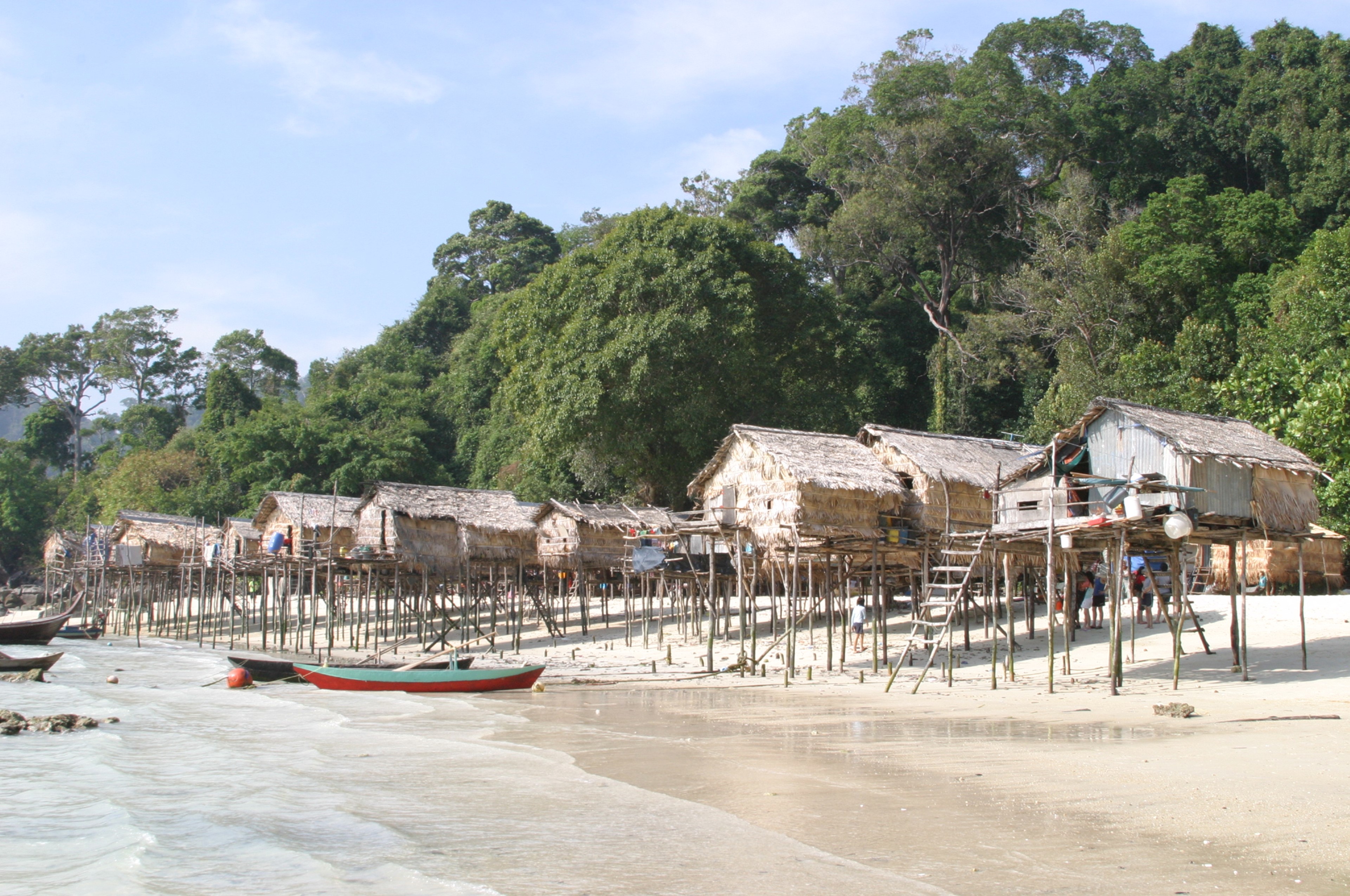
Sadly, the Moken way of life is facing challenges due to modernization, restrictions on their nomadic lifestyle, and the impact of tourism. However, efforts are being made to preserve their cultural heritage and empower them to adapt while maintaining their unique identity.
Want to learn more about their fascinating traditions? Keep reading to discover the specifics of their daily life and beliefs! 👇
Moken Life: A Symphony with the Sea
The Moken people have a unique and fascinating way of life, deeply intertwined with the sea. Let's delve into their traditional homes, boats, fishing techniques, and beliefs.
Homes on the Water
Traditionally, the Moken lived on houseboats called kabang. These simple, yet sturdy structures were built from driftwood and tied together with vines or coconut fiber. They provided shelter from the elements and a platform for their nomadic lifestyle. Today, many Moken have transitioned to living in permanent settlements on land, often in villages like Morgan Village.
The Kabang: A Seafaring Home
The kabang is more than just a boat; it's a home, a workshop, and a mode of transportation. These sturdy vessels are expertly crafted by the Moken, who have honed their boat-building skills over centuries. The construction process is a testament to their ingenuity and resourcefulness, utilizing natural materials and traditional techniques.
Fishing and Foraging
Fishing is at the heart of the Moken way of life. They are skilled divers and fishermen, using traditional techniques like spear fishing and net fishing. They possess a deep understanding of marine ecosystems and have developed sustainable practices to ensure the health of the ocean.
Beliefs and Spirituality
The Moken have a strong connection to nature and a belief in animism, where spirits inhabit all living things. They have a deep respect for the sea and its creatures, recognizing its importance to their survival. Traditional Moken beliefs and practices are passed down through generations, shaping their worldview and guiding their actions.
By understanding their unique lifestyle and traditions, we can appreciate the rich cultural heritage of the Moken people and the challenges they face in preserving their way of life.
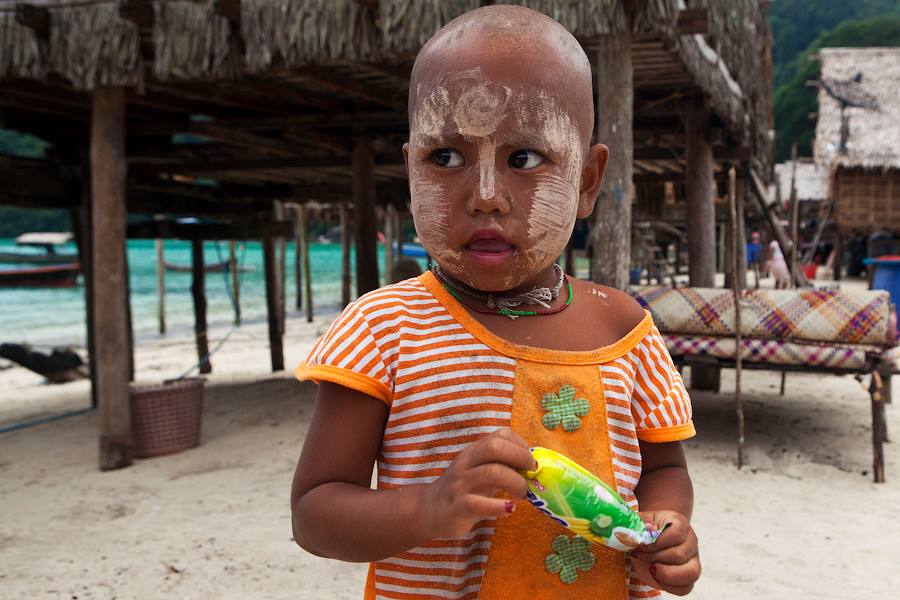
Visiting Morgan Village: Tread Lightly, Learn Deeply
The Moken people of Morgan Village welcome visitors to their unique corner of the world, but it's crucial to approach your visit with respect and sensitivity. Remember, you're stepping into a community with a rich cultural heritage and a delicate way of life.
Here's how to ensure your visit is positive for both you and the Moken people:
1. Educate Yourself:
Before you arrive, take the time to learn about the Moken culture, history, and traditions. Understanding their values and customs will help you interact respectfully and appreciate their way of life.
2. Choose Responsible Tour Operators:
If you're booking a tour, opt for operators who prioritize ethical and sustainable practices. Look for those who:
- Consult with the Moken community: Ensure the tours are designed in collaboration with the villagers and benefit them directly.
- Employ local guides: This provides economic opportunities for the Moken people and ensures authentic cultural exchange.
- Minimize environmental impact: Choose tours that prioritize eco-friendly practices and minimize their footprint.
3. Respect their Traditions:
- Ask before taking photos: Always ask permission before photographing people or their homes.
- Dress modestly: Dress conservatively, especially when visiting villages or sacred sites.
- Observe local customs: Be mindful of local customs and traditions. Your guide can provide guidance on appropriate behavior.
4. Support the Local Economy:
- Purchase handcrafts: Buying directly from Moken artisans supports their livelihoods and helps preserve traditional skills.
- Stay in locally-owned accommodation: Choose eco-lodges or homestays that benefit the local community.
- Avoid giving handouts: Instead of giving money or candy, support local businesses or initiatives that empower the Moken people.
5. Minimize Your Impact:
- Reduce waste: Pack reusable water bottles, bags, and containers to minimize your environmental impact.
- Dispose of trash responsibly: Keep the environment clean and avoid leaving any trace of your visit.
- Conserve resources: Be mindful of your water and energy consumption.
By following these guidelines, you can contribute to responsible tourism that respects the Moken culture, supports their community, and helps preserve their unique way of life for generations to come.
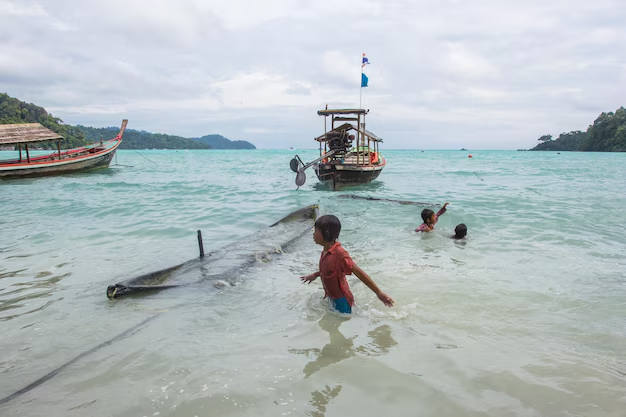
Navigating Change: Challenges Facing the Moken
While the Moken have thrived for centuries in harmony with the sea, their traditional way of life is now facing unprecedented challenges. Understanding these challenges is crucial for promoting responsible tourism and supporting the community's future.
Modernization and Integration:
- Loss of Traditional Skills: As the Moken increasingly integrate with mainstream society, younger generations may lose interest in traditional skills like boat building, navigation, and free-diving.
- Dependence on Modern Goods: Access to modern goods and technologies can create a dependence on the outside world and erode self-sufficiency.
- Land-Based Living: Government policies and economic pressures often encourage the Moken to settle on land, disrupting their nomadic traditions and connection to the sea.
Environmental Concerns:
- Overfishing and Pollution: Overfishing and pollution threaten the marine resources that the Moken depend on for their livelihood.
- Climate Change: Rising sea levels, ocean acidification, and extreme weather events pose significant threats to their coastal communities and traditional way of life.
- Marine Conservation: While important for protecting ecosystems, marine conservation efforts can sometimes restrict the Moken's traditional fishing and foraging practices.
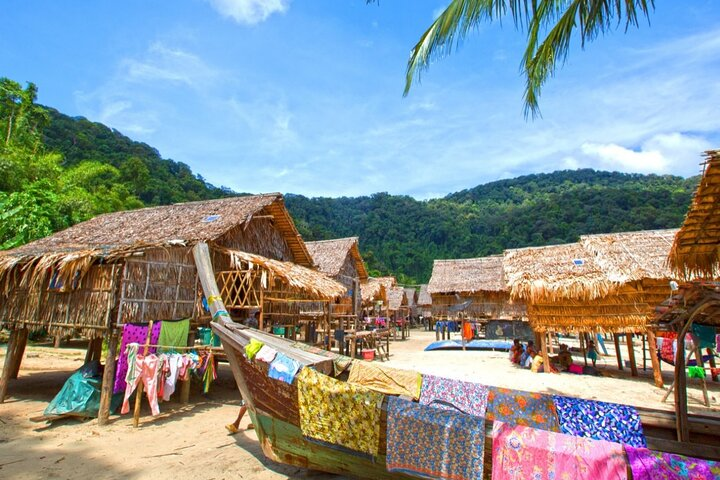
Impact of Tourism:
- Cultural Commodification: Tourism can lead to the commodification of Moken culture, potentially exploiting their traditions for commercial gain.
- Disruption of Daily Life: An influx of tourists can disrupt the Moken's daily life and create pressure to conform to visitor expectations.
- Environmental Impact: Increased tourism can contribute to environmental problems like pollution and waste generation.
Conservation Efforts:
Despite these challenges, there's hope for the future. Various organizations and initiatives are working to:
- Empower Moken Communities: Supporting education, healthcare, and sustainable economic opportunities.
- Preserve Cultural Heritage: Documenting and promoting Moken traditions, language, and knowledge.
- Promote Sustainable Tourism: Encouraging responsible tourism practices that benefit the Moken community and minimize environmental impact.
By being aware of these challenges and supporting conservation efforts, we can help ensure that the Moken people can continue to thrive while preserving their unique cultural heritage.
